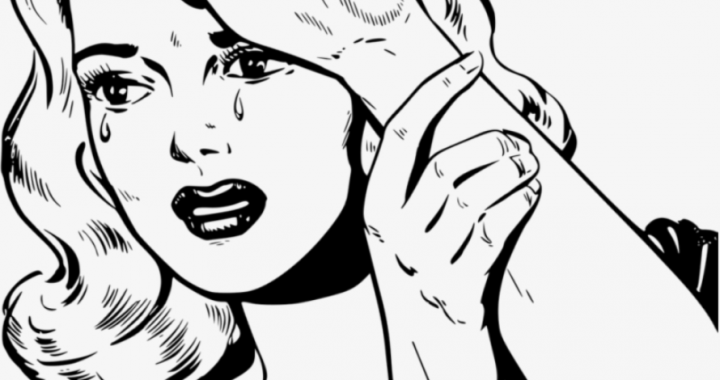I’m being silly with the title. But here is why: James Scott Bell tells us in chapter four his thoughts on beginnings. They must check a series of elements. The story hooks the reader, usually with motion (which I thought a nice touch). The reader bonds with the lead. The story world presents itself. The tone establishes itself. The opposition appears. And all in all the beginning, as a result of all the above, compels the reader forward.
I would like to touch a little on these elements, then talk about how I’ve treated them in the past, and finally I would like to end on a draft opening of my next novel.
1.
So, Hook em. Reminds me of my university slogan. Aside from the image of a long horn sticking it into somebody, hooking readers is a must. When I open a book with a pretty cover, you bet I want to teleport. Although the chances are slim to none, a new book by an unknown author thrills me. One out of a hundred times, browsing the used shelves, I do get hooked just in the opening line. We want this feeling. So let’s do it.
After hooking the reader, or grabbing them by the collar as a MFA professor once said, hold the collar. This is the bond, according to Mr Bell. When the reader identifies, relates, sympathizes, likes, and understands the inner turmoil of a lead characters, boom, you got yourself a bond. “We are all trying to make it,” Mr Bell writes. “And a little fearful. And not perfect.” If our lead character does and struggles the same as us, then we relate.
The world building and tone setting are important, even I know that. All stories I love place me in a definite time and place. Sometimes the setting is enough to trigger the whole story. In a galaxy far, far away. Mount Olympus. The house of a 19th century Russian aristocrat. Somehow saying 21st century New York City gives me literary fiction vibes. That or Sex and the City vibes. As. It. Should.
Opposition acts as shadow, the push, the force that will oppose the lead, confront him, or destroy him. A must. And where I think my first novel lacked a little. Let me explain.
2.
Judging by my Kindle Unlimited numbers (so people who don’t know me and just stumble upon the book) few strangers have gotten past the first couple of pages of my debut. Reading Mr Bell’s book makes me wonder if I had my priorities mixed up.
The opening does begin with motion and action, but of nature and animals. The lead doesn’t speak until half-way down the first page. And even then there is stasis. I was going for ennui and mood, yet never show (not in the beginning nor in the end) what it is the characters want. They sort of move from one adventure to the next, like young Beowolfs, but without the monsters. Then, and I think the hardest blow to the opening chapter, there isn’t any external conflict until page 4 or 5, even when the boys wonder a city highly intoxicated. I thought it would be enough to carry the reader with internal conflict. “What lies after graduation?” “What is growing up?” But I suppose these were either not clear enough or not interesting enough, not according to this Mr Bell.
I have been told, by people who never gave the whole book a chance (so let’s assume they only read the first couple pages) that my characters lack vulnerability. This is, what Mr Bell calls, Sympathy. (Or what would have made those unhooked people turn pages.) My characters didn’t illicit their sympathy. Some danger, sure, in walking around and partying high. But no jeopardy to their lives, since they walk off scott-free. No one is punished. And I think readers want to punch my characters in the face, just to watch them bleed. It’s true, I get them out of trouble in the nick of time. They aren’t underdogs, or overdogs, just dogs. And I suppose no one wants to root for dogs, especially if they’re mangy, unless they have a cute face.
The characters don’t lack in likability, though, imo. Whenever a character acts funny, shows kindness or generosity, then readers like the characters. I definitely tried to put that in there.
In the end, I believed that if every sentence felt something, that if every action lead to the next, and that if interesting things happened, then the story would progress. Who knows. Someone with a keen eye will have to dissect the pages. (Perhaps that’s why I want to work with an editor on the next book . . .)
3.
After 2 days, 1 month, and 15 cycles around the sun, Sam finally replies. His email lays in my inbox, bold, loud, a preview full of capital letters and impeccable grammar. I almost don’t open it. But when I do, I almost notice he has replied in kind. A novel for a novel. Here it is.
“Juan,” it begins. So clean, direct, like how a photographer would snap a photo, or how a girlfriend would restrain herself before snapping your neck. “Forgive me . . .” now this is priceless, Sam, really, thank you, . . .”if it took so long to reply to your email . . .”
After an itsy-bitsy 1300-word preamble, comes his actual email: the comments, which I have asked for, on the book I wrote about our trip to Southeast Asia. Skim, skim, skim . . . nope. I was wrong. Judging by the time it took to scroll down to the bottom, where again he apologizes, I would put the reply at about 20,000 words. He didn’t write a novel, then, not even a novella. 15 years . . . that puts him at about one preamble a year. The taciturn bastard. I feel robbed. But then again, relieved. As if the chance for him to upstage me, in the last domain I feel myself competent, disappeared.
I confess, I don’t touch my computer the rest of the morning, let alone read what he wrote. Impossible. Yet it haunts me. As I pour milk into the oats, I wonder, Did Sam make tacos the morning I sent him the book? Or did he read it right away? As I ask the coffee machine to fix me an espresso, I wonder, Does Sam have cancer that he needs to tie up old loose? Or does he know I lost tenure at the university? As I hit accept on my fridge to order milk, I cannot help but wonder, Will I read the email or not?




